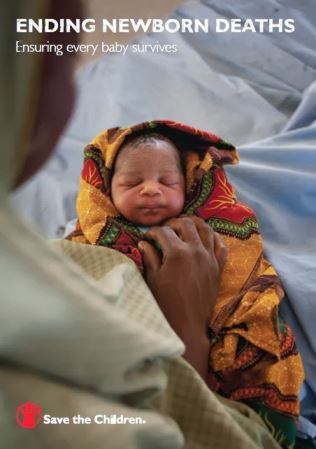The NGO, “Save the Children” invited different stakeholders working on maternal and child health issues to a meeting in Abuja on the 25th February 2014 to launch their new report. It contained data that does not surprise.
Nigeria still has one of the highest under-five and newborn mortality rates in the world, at 123.7 and 39.2 per 1,000 live births and this is not equally distributed in the country. Unsurprisingly, the under-five mortality rate is nearly 2½ times higher among the poorest households than the richest households.
Nigeria is second out of the ten countries with the highest rates of first day deaths and still births during labour in the world, behind Pakistan with 33 intrapartum stillbirths and neonatal deaths on day of birth per 1,000 total births.
We could go on and on, but these statistics soon leave you feeling numb and perhaps desensitised to the full scale of the problem. As a country that has become numb to the impact of the terror attacks in the North East that killed innocent school children, the death of women in childbirth hardly raises a whisper.
At the same time, there are various efforts by the government to address this through various programmes; the Midwives Service Scheme (MSS) managed by the National Primary Health Care Development Agency (NPHCDA), the Maternal and Child Health project of the Subsidy Reinvestment and Empowerment Programme (SURE-P), the ‘Saving One Million Lives’, an elaborate scheme to expand access to essential primary health care services for women and children launched by President Goodluck Jonathan in 2013. This is in addition to many NGOs working in this space including Save the Children, whose report was being launched and the Wellbeing Foundation, whose founder; Mrs Toyin Saraki was recognised as a national newborn champion.
 |
| Mrs Toyin Saraki (centre) with some mothers and babies at the event |
So, the question on everyone’s mind must be, with all these investments why are we not seeing the impact that we seek? Even if we discount the security situation in the North East of the country. We keep hearing about Nigeria’s 7% growth rate and how we will soon surpass South Africa to be the largest economy in Africa. However, the GDP growth rate is just one indicator to measure a country’s progress. There are many other indicators….
At times like this…I reflect on Robert Kennedy’s famous quote;
For too long, we seem to have surrendered community excellence and community values to the mere accumulation of material things; measured by our gross national product (GNP) …
Yet, GNP does not allow for the health of our children, the quality of their education, or the joy of their play. It does not include the beauty of our poetry or the strength of our marriages; the intelligence of our public debate or the integrity of our public officials. It measures neither our wit nor our courage; neither our wisdom nor our learning; neither our compassion nor our devotion to our country; it measures everything, in short, except that which makes life worthwhile.
Maybe it is time we re-visit our excitement about GDP growth and put greater focus on the measures that equitably improve the life of all members of society. In addition, as individuals in the absence of government intervention and funding, we have a social responsibility to protect the weakest and most vulnerable members of our society. We should not just accept the current status quo, but to try to make a difference in whatever small way we can. Large multi-nationals, small and medium enterprises, do you have social responsibility programmes or initiatives in place? Every little helps.
Never doubt that a small group of thoughtful committed people can change the world; indeed it is the only thing that ever has…Margaret Mead



